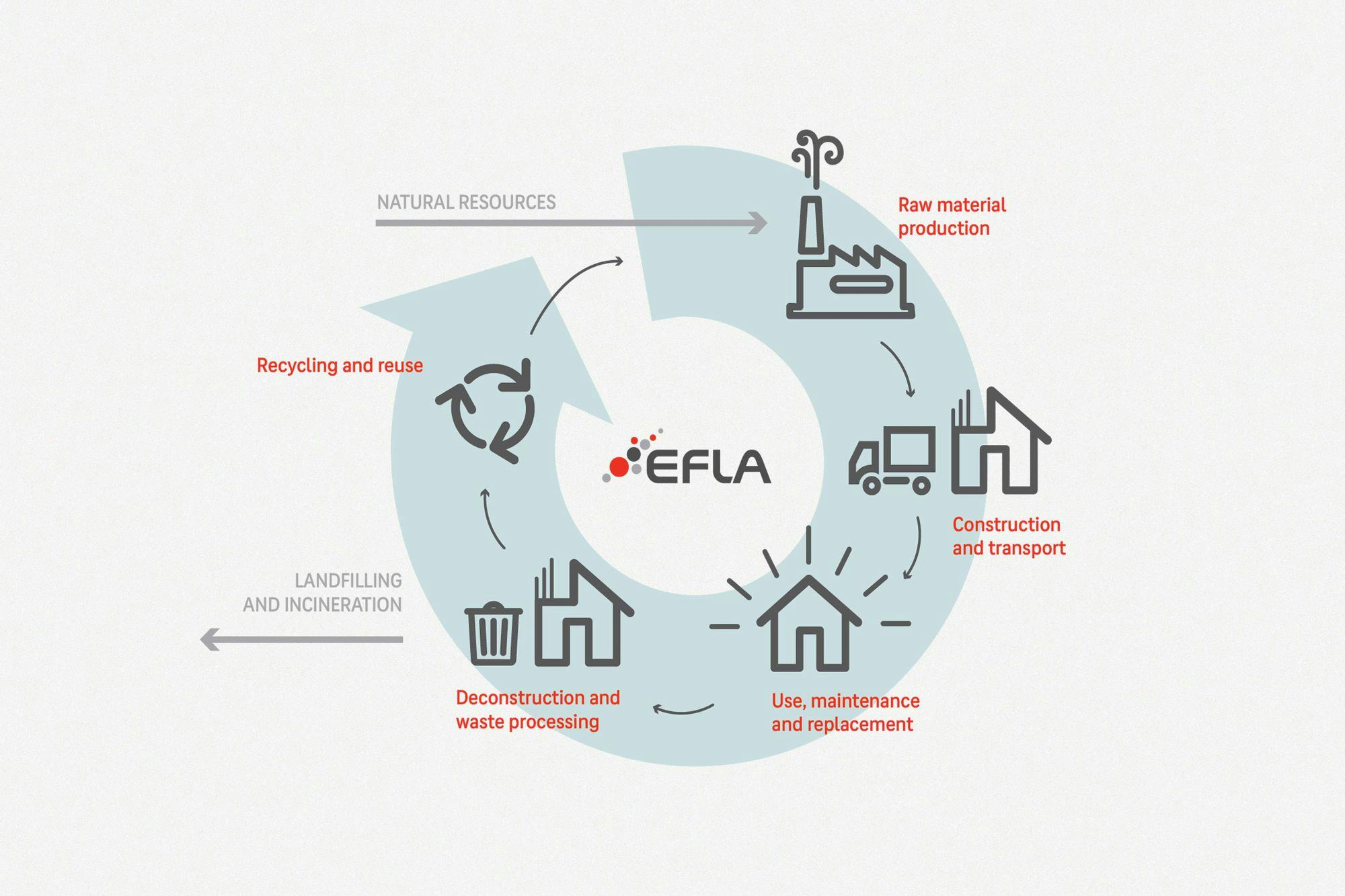Life Cycle Assessment and Costing (LCA and LCC)
When considering your environmental impact and cost, it's critical to take the long view. EFLA can help your organization calculate the ecological footprint and cost of your products or services throughout their entire lifetime.

Method
Life cycle Assessment (LCA) and Life cycle costing (LCC) are methodologies used to assess the environmental impact, ecological footprint, and cost of your goods and services “from cradle to grave”. They cover every stage of the life cycle: resources, processing, manufacturing, usage, and end of life. EFLA follows the relevant parts of internationally recognized sustainability standards. For LCA calculations, these include ISO 14040 and ISO 14044; while for LCC, we follow ISO 15686 and ISO 15663. EFLA’s experts have extensive experience guiding clients through the various options, resulting in robust calculations and viable recommendations for optimization.
Quality and sustainability
At EFLA, we are leaders in environmental consulting, with a long track record of carrying out LCA, LCC and carbon footprint projects for clients in Iceland and elsewhere. We use the latest and most reliable LCA and LCC methods, enabling clients to get the full picture. Our experts draw on extensive experience of carrying out LCAs in sectors including construction, energy, transport, industry, food processing and fisheries, and waste management and recycling. We are also experienced in conducting LCCs, especially in the construction sector. As expert engineers, we can offer you customized solutions to address issues highlighted by an LCA or LCC.
Strategic advantages
LCAs and LCCs are powerful tools in the strategic process and in product development. They pinpoint where environmental impacts or costs originate, which is vital for improving the sustainability and cost-effectiveness of projects, products or services. They are also the basis for environmental product declarations (EPD), which allow for comparisons between companies and goods. By providing transparent, reliable information about your environmental impact and costs, you can gain a competitive advantage in the market.